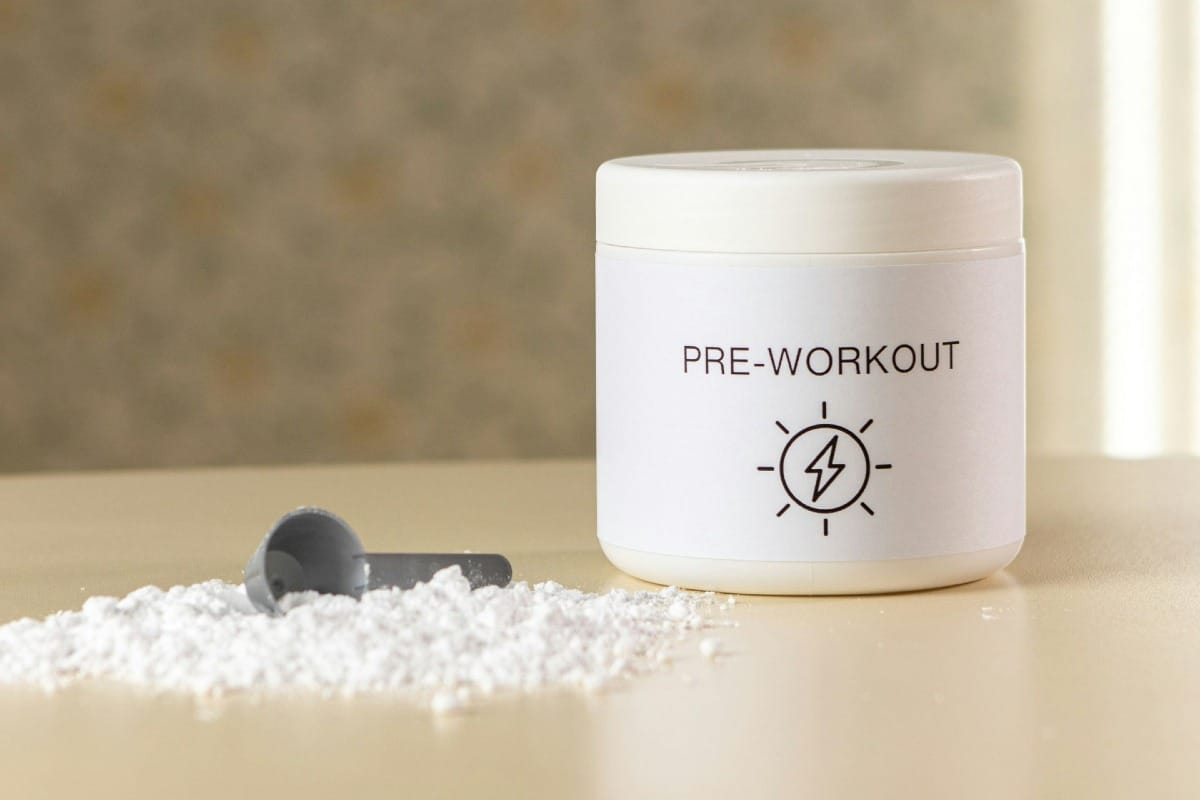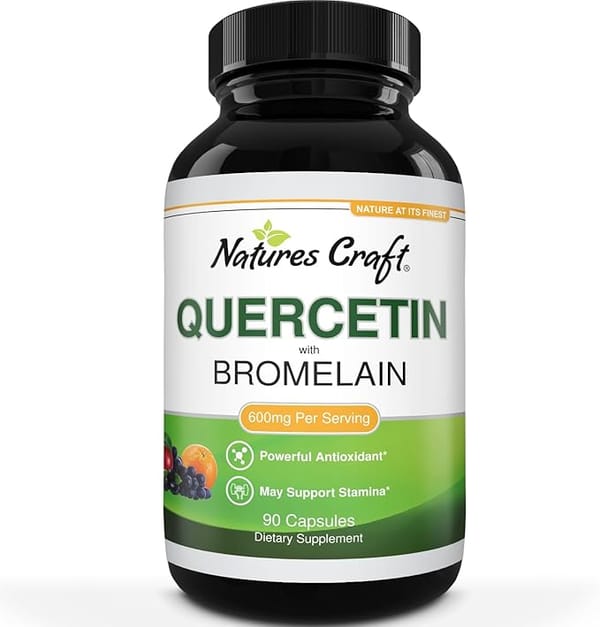Pre-workout supplements have become increasingly popular among fitness enthusiasts, promising enhanced performance and energy during exercise. However, as reported by Mayo Clinic, it's crucial to understand which ingredients are safe and effective, and which ones should be approached with caution or avoided altogether.
Understanding Pre-Workout Supplements
Pre-workout supplements are dietary products designed to enhance exercise performance when consumed before physical activity. These supplements typically contain a blend of ingredients aimed at increasing energy, focus, and endurance during workouts.
The main components of pre-workout supplements often include:
- Caffeine: A stimulant that can improve alertness, focus, and physical performance. Caffeine is one of the most common and well-studied ingredients in pre-workout formulas.
- Beta-alanine: An amino acid that may help buffer lactic acid in muscles, potentially delaying fatigue during high-intensity exercise.
- Creatine: A compound that can enhance strength and power output, particularly in short-duration, high-intensity activities.
- Amino acids: Including branched-chain amino acids (BCAAs) and other essential amino acids, which may support muscle recovery and reduce fatigue.
- Nitric oxide boosters: Ingredients like citrulline or arginine that aim to increase blood flow to muscles during exercise.
- B-vitamins: These water-soluble vitamins play crucial roles in energy metabolism and may help combat fatigue.
While these ingredients can offer potential benefits, it's important to note that the effectiveness and safety of pre-workout supplements can vary significantly based on their specific formulation and an individual's physiology. Some people may experience enhanced performance and energy levels, while others might not notice significant effects or may even experience adverse reactions.
The timing of pre-workout supplement consumption is crucial for maximizing potential benefits. Generally, these products are designed to be taken 30-60 minutes before exercise to allow for proper absorption and onset of effects. However, individual responses can vary, and some people may need to adjust this timing based on personal experience.
It's worth noting that while pre-workout supplements can be a convenient way to boost energy and performance, they are not essential for achieving fitness goals. A balanced diet, proper hydration, and adequate rest can often provide similar benefits without the potential risks associated with supplement use.
When considering pre-workout supplements, it's crucial to:
- Carefully read and understand product labels
- Start with lower doses to assess tolerance
- Be aware of personal sensitivities, especially to stimulants
- Consider cycling off supplements periodically to prevent tolerance build-up
- Consult with a healthcare professional before starting any new supplement regimen, particularly for individuals with pre-existing health conditions or those taking medications
Understanding the composition, potential benefits, and proper usage of pre-workout supplements can help individuals make informed decisions about whether these products align with their fitness goals and overall health strategy.
Sources:
Benefits and Risks
Pre-workout supplements can offer potential benefits for exercise performance, but they also come with certain risks that users should be aware of. Understanding both aspects is crucial for making informed decisions about incorporating these supplements into a fitness routine.
Benefits:
- Enhanced Energy and Focus: Many pre-workout supplements contain caffeine, which can provide a significant boost in energy and mental alertness. This can be particularly beneficial for early morning or after-work training sessions when fatigue might otherwise impair performance.
- Improved Endurance: Ingredients like beta-alanine and citrulline malate may help delay muscle fatigue and improve endurance during high-intensity exercises. This can potentially allow for longer, more productive workout sessions.
- Increased Muscle Pump: Nitric oxide boosters, such as L-arginine or beetroot extract, can enhance blood flow to muscles during exercise. This may result in a more pronounced "muscle pump" and potentially better nutrient delivery to working muscles.
- Faster Recovery: Some pre-workout formulas include branched-chain amino acids (BCAAs) or other recovery-promoting ingredients that may help reduce muscle soreness and support faster recovery between workouts.
- Performance Enhancement: Creatine, a common ingredient in many pre-workout supplements, has been shown to improve strength and power output, particularly in high-intensity, short-duration activities.
Risks:
- Overstimulation: The high caffeine content in many pre-workout supplements can lead to jitters, anxiety, and difficulty sleeping, especially in individuals sensitive to stimulants. This can negatively impact overall well-being and recovery.
- Digestive Issues: Some ingredients, particularly in high doses, may cause gastrointestinal discomfort, including nausea, cramping, or diarrhea. This can be especially problematic when consumed close to workout time.
- Increased Blood Pressure: Stimulants like caffeine and other ingredients such as yohimbine can cause temporary spikes in blood pressure. This may be concerning for individuals with pre-existing cardiovascular conditions.
- Dehydration: The diuretic effect of caffeine, combined with increased sweating during exercise, can potentially lead to dehydration if adequate fluid intake is not maintained.
- Dependency: Regular use of stimulant-heavy pre-workout supplements may lead to tolerance build-up, potentially resulting in dependency or reduced effectiveness over time.
- Interactions with Medications: Some ingredients in pre-workout supplements may interact with certain medications, potentially causing adverse effects or reducing the efficacy of the medication.
- Contamination Risks: Due to limited regulation in the supplement industry, there's a risk of contamination with banned substances or inaccurate labeling, which can be particularly problematic for competitive athletes subject to drug testing.
- Long-term Effects: The long-term effects of some pre-workout ingredients, especially newer or less-studied compounds, are not fully understood and may pose unknown risks with prolonged use.
To mitigate these risks while potentially benefiting from pre-workout supplements, it's essential to:
- Choose products from reputable manufacturers with transparent labeling
- Start with lower doses to assess individual tolerance
- Be aware of personal sensitivities, especially to stimulants
- Maintain proper hydration before, during, and after workouts
- Cycle off pre-workout supplements periodically to prevent tolerance build-up
- Consult with a healthcare professional before starting any new supplement regimen, especially for individuals with pre-existing health conditions or those taking medications
By carefully weighing the potential benefits against the risks and following safe usage guidelines, individuals can make more informed decisions about incorporating pre-workout supplements into their fitness routines.
Sources:
Safe Usage Guidelines
When using pre-workout supplements, it's essential to follow safe usage guidelines to maximize benefits while minimizing potential risks. Here are some key recommendations:
- Start with a lower dose: Begin with half the recommended serving size to assess your tolerance. This approach allows you to gauge how your body reacts to the ingredients and helps prevent adverse effects.
- Read labels carefully: Always check the ingredient list and dosages. Be wary of proprietary blends that don't disclose specific amounts of each component. This information is crucial for understanding what you're consuming and in what quantities.
- Timing is important: Consume pre-workout supplements 30-60 minutes before exercise for optimal effects. This timing allows the ingredients to be absorbed and start working as you begin your workout.
- Stay hydrated: Pre-workout supplements, especially those containing caffeine, can have a diuretic effect. Ensure you drink plenty of water before, during, and after your workout to maintain proper hydration.
- Cycle your usage: To prevent tolerance build-up, particularly to stimulants like caffeine, consider cycling off pre-workout supplements periodically. This can mean taking breaks for a week or two every couple of months.
- Be mindful of caffeine intake: If your pre-workout contains caffeine, factor in your daily caffeine consumption from other sources like coffee or energy drinks. The FDA recommends limiting caffeine intake to 400mg per day for healthy adults.
- Avoid mixing with other stimulants: Don't combine pre-workout supplements with additional stimulants or energy drinks, as this can lead to excessive caffeine intake and increased risk of side effects.
- Consider your workout timing: If you exercise in the evening, be cautious with stimulant-containing pre-workouts as they may interfere with your sleep quality.
- Listen to your body: If you experience any adverse effects such as jitters, nausea, or rapid heartbeat, discontinue use and consult a healthcare professional.
- Choose third-party tested products: Opt for supplements that have been tested by independent organizations for purity and accuracy of labeling.
- Consult a healthcare provider: Before starting any new supplement regimen, especially if you have pre-existing health conditions or are taking medications, consult with a healthcare professional.
By following these guidelines, you can use pre-workout supplements more safely and effectively, potentially enhancing your workout performance while minimizing health risks.
Sources:
Ingredients to Avoid
When considering pre-workout supplements, it's crucial to be aware of potentially harmful ingredients that should be avoided. While many components in these supplements can be beneficial when used appropriately, some pose significant health risks or have been banned by regulatory agencies.
One ingredient to be cautious of is 1,3-dimethylamylamine (DMAA), which has been banned by the FDA due to its association with serious cardiovascular risks. DMAA can cause elevated blood pressure and, in some cases, lead to heart attacks. Despite the ban, some manufacturers may still include this ingredient under different names, so it's essential to be vigilant when reading labels.
Another concerning ingredient is synephrine, also known as bitter orange extract. This stimulant can cause increased heart rate and blood pressure, potentially leading to cardiovascular issues, especially when combined with caffeine. While not banned outright, its use in supplements is controversial due to safety concerns.
Excessive amounts of caffeine should also be approached with caution. While caffeine is generally safe in moderate doses, some pre-workout supplements contain extremely high levels that can lead to adverse effects such as anxiety, insomnia, and rapid heart rate. It's important to consider your total daily caffeine intake from all sources when using these supplements.
Yohimbine, derived from the bark of an African tree, is another ingredient to be wary of. It can cause anxiety, hypertension, and gastrointestinal distress in some individuals. Its effects can be particularly pronounced when combined with other stimulants commonly found in pre-workout formulas.
Some pre-workout supplements may contain unlisted anabolic steroids or other prohibited substances. These can have serious health consequences and may result in positive drug tests for athletes subject to doping controls. Always choose products from reputable manufacturers that undergo third-party testing for purity and content accuracy.
Proprietary blends, while not inherently dangerous, can be problematic because they don't disclose specific amounts of individual ingredients. This lack of transparency makes it difficult to assess the safety and efficacy of the product. When possible, opt for supplements that clearly list the quantity of each ingredient.
In summary, when selecting a pre-workout supplement, it's crucial to:
- Avoid products containing DMAA or other banned substances
- Be cautious with supplements containing synephrine, especially in combination with caffeine
- Monitor total caffeine intake and avoid excessively high doses
- Be aware of potential side effects from ingredients like yohimbine
- Choose products from reputable manufacturers with transparent labeling
- Consult with a healthcare professional before starting any new supplement regimen, especially if you have pre-existing health conditions or are taking medications
By being informed and cautious about these potentially harmful ingredients, you can make safer choices when it comes to pre-workout supplements and protect your health while pursuing your fitness goals.
Sources:














Member discussion